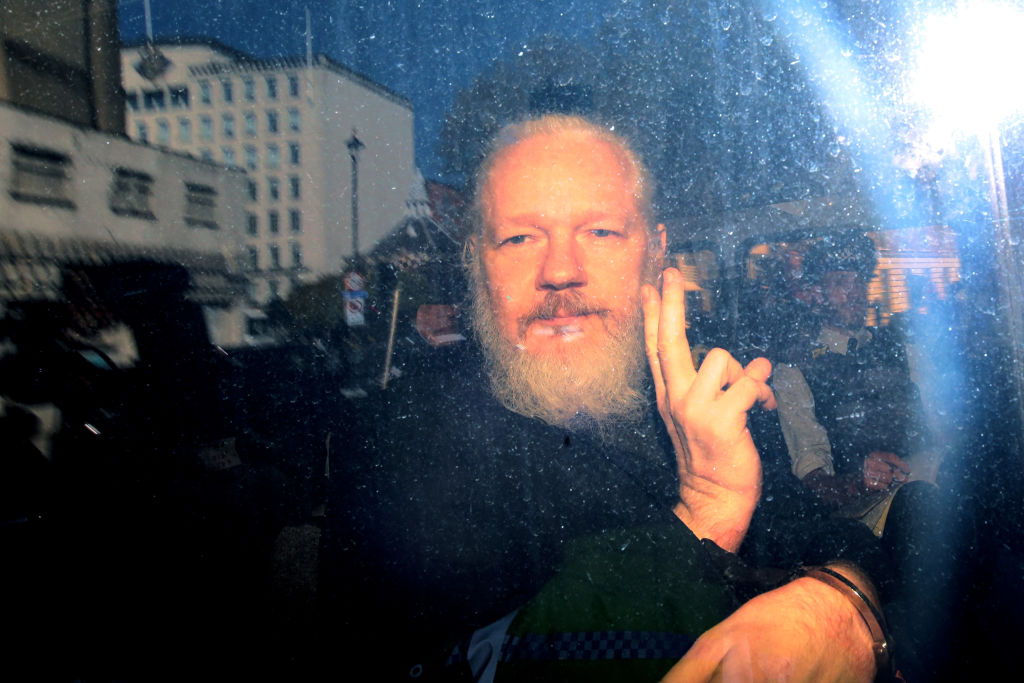Today’s UK High Court ruling on the Julian Assange case was a much-anticipated one. The two judges were called to decide on whether the WikiLeaks founder could mount a new appeal against his extradition to the US on charges of leaking military secrets under the Espionage Act. If Assange had lost his right to an appeal, he could have potentially been handed over immediately to the US authorities for deportation.
That scenario has, for now, been averted: the two British judges ruled in Assange’s favour, upholding his right to appeal against his extradition to the US.
For Assange’s supporters, this is obviously good news. There’s little doubt that, if extradited, he would almost certainly be sentenced to life imprisonment in extremely punitive conditions which would push his already critical physical and psychological conditions over the brink. “If he’s extradited, he will die,” his wife Stella has said.
Yet the ruling falls short of what Assange’s supporters have been demanding for years: his immediate and unconditional release.
It’s worth recalling that Assange has been held without trial in the maximum-security Belmarsh Prison — and subjected to “prolonged psychological torture”, according to a UN report — for more than five years, despite being technically innocent before British law. Before that, he spent seven years in self-exile in London’s Ecuadorian Embassy to avoid being extradited to America, where he had good reason to believe he wouldn’t be given a fair trial — a fear subsequent events would prove justified.
Assange has now been subjected to relentless legal persecution by some of the world’s most powerful governments, primarily the US and UK, for 14 years. These state authorities, including their judicial branches, have had no qualms about disregarding fundamental principles of due process in their effort to crush Assange (including “proactive manipulation of evidence”).
The truth is that there is no plausible case against Assange. The Americans’ case rests on two main pillars. Firstly, that his work does not fall under the protection of the First Amendment because he didn’t limit himself to receiving and publishing classified documents but allegedly “went beyond that” by actively seeking classified information, as well as helping Chelsea Manning and others to hack into Government computers. The second is that Assange and WikiLeaks damaged national security and intelligence services and “created a grave and imminent risk” for US sources and informants. Both claims, however, have been thoroughly refuted.
What Assange is being punished for is obvious to everyone: having exposed crimes committed at the highest level of the US state, including war crimes, civilian massacres, torture, illegal “renditions”, mass surveillance programmes, political scandals, pressure on foreign governments and widespread corruption. The US can’t let go that unpunished — not least to ensure that no other journalist dares to follow in his steps.
But the fact remains that the work Assange did at WikiLeaks was indistinguishable in any legally meaningful way from what traditional news organisations do — including actively seeking out confidential information of public interest. This is why Barack Obama and his justice departments ultimately decided not to bring charges under the Espionage Act against Assange. They understood that if they indicted him, they would also have to prosecute the New York Times, and other news organisations and writers who published classified material. They called it the “New York Times problem”.
The Biden administration also understands this. White House officials know that convicting a journalist would set a terrible precedent, especially in the run-up to the election. But at the same time, they can’t allow Assange to walk free — not yet at least. This is why keeping him in a never-ending legal limbo, with the active complicity of the British state, is the ideal solution from their perspective: it achieves the aim of punishing Assange while maintaining the pretence of the rule of law. Assange himself described this technique as “punishment as process”: subjecting enemies of the state to lengthy detentions without trial — almost 2,000 days in Assange’s case — only to be slapped with minor charges after years.
The latest ruling, which further kicks the can down the road — potentially for years — perfectly fits this modus operandi.











Join the discussion
Join like minded readers that support our journalism by becoming a paid subscriber
To join the discussion in the comments, become a paid subscriber.
Join like minded readers that support our journalism, read unlimited articles and enjoy other subscriber-only benefits.
Subscribe